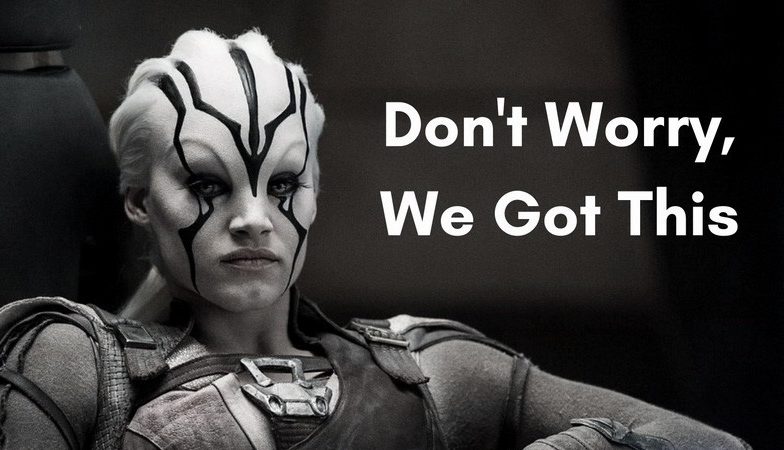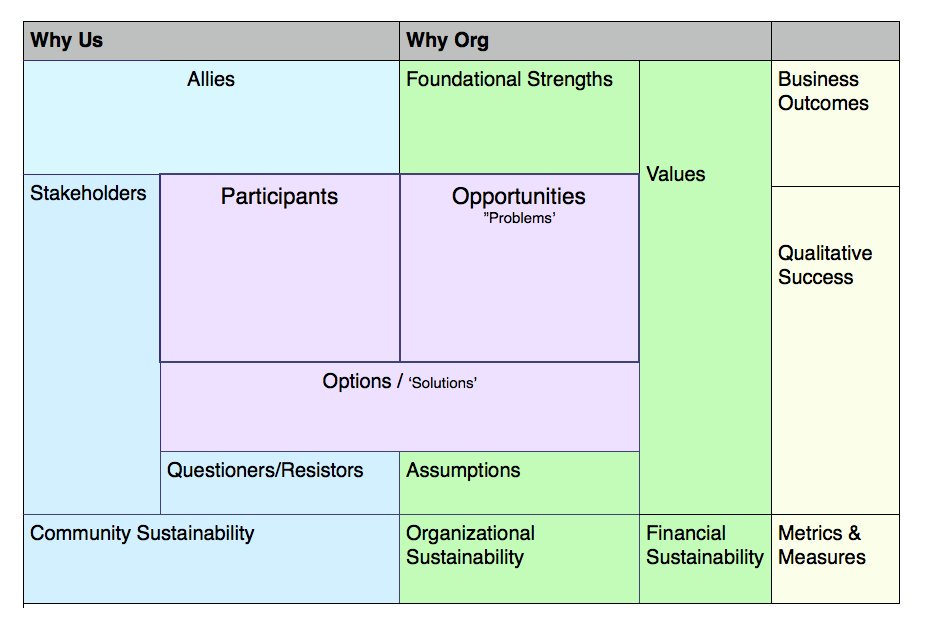
Goodbye Trump. Now what?
Photo by Jon Tyson via Unsplash. Note: At the time of writing this, Trump refuses to accept the results of the US general election.
The post Fighting Fascism: Lessons from the pro-choice struggle appeared first on LiisBeth.
]]>The post Fighting Fascism: Lessons from the pro-choice struggle appeared first on LiisBeth.
]]>The post Goodbye Trump. Now what? appeared first on LiisBeth.
]]>The post Goodbye Trump. Now what? appeared first on LiisBeth.
]]>The post Dispatch #20 appeared first on LiisBeth.
]]>
I recently found exactly what I was looking for when I was least expecting it. It came in the form of a book given to me by a fellow friend and entrepreneur whom I nicknamed “Fozzie.” When the conversation inevitably turned to Donald Trump’s win, he handed me the book.
The book “The Road to Character” was written over a year ago by David Brooks, an American conservative author, and columnist for the New York Times. I hadn’t heard of it, but it was, in fact, the second time Brooks’ name was mentioned to me that day. I pay attention to those kinds of celestial cues. I went home and started reading it that night.
The book is about character and why we should live life as we ought to, as kind, compassionate people, and not how societies’ most recent narrative or systems tell us to. To make the point, Brooks researches the lives of outstanding people and explains why deeper “Little Me” values and concerns for a better future for all of humanity should inform our lives, rather than the “Big Me,” which emphasizes shallowness, popularity and resume virtues. Brooks’ narrative shows us what it takes to build, and what it looks like to be anchored by strong inner character (Spoiler alert-its hard). He says, ‘’Life cannot be organized like a business plan” or succeed on an “individual autonomy” platform.
His study of the topic also leads him to observe that the road to moral character “involves moments of moral crisis, confrontation, and recovery.” If Brooks’ book, and before him, Leonard Cohen’s entire body of work teaches us anything, it’s that being good is not an exercise in perfection, it’s also about embracing and productively wrestling with our dark sides.
I am not surprised that Fozzie had this book on his shelf. He IS this book. Self-effacing, soothing, gracious, always questioning, and refreshingly funny and honest about how frustrating it can be when the rewards of trying to live a life of character are so invisible, sometimes even to family and friends, especially given the work and sacrifice required to sometimes really live it.
Yes, it’s hard for any business working towards financial sustainability, to have to fire an otherwise valuable leader in your company due to repeated misogynistic behavior. It takes courage to write an op-ed that you know some of your funders will disagree with. And it is especially gutsy to say no thanks to a “this will make our year” deal with a clearly racist client who treats your frontline multicultural staff inappropriately. Try to explain any one of these to your shareholders, or your kids who are hoping for something other than a “staycation” this year. Taking a stand that that advances society, but not necessarily your business or family pocketbook is hard. But that’s what people like Fozzie do.
Life cannot be organized like a business plan or succeed on an individual autonomy platform.
Not everyone appreciates Brooks’ moralizing prose. But that day, Fozzie’s gift —and what I took from it—uplifted me. It inspired me to step up my personal efforts to wade in even deeper, and work harder to embrace my still stumbling “Little Me.”
As I read, I also thought about the coming Trump era. Notably, a sense of hope emerged. With Brexit, Trump, and OMG, the growing audience for politicians like Kellie Leitch in Canada, we cannot deny that we have entered a new era that has clearly affected many of us personally, and will impact our communities and enterprises in many ways in the coming years. However, how we allow it to affect us is going to be the result of the strength of the connection between values, character, and action.
For me, Brooks’ prose strengthened my commitment to stand up, engage, and continue to collaborate with others to tackle outdated norms and systemic biases to foster a truly just, equitable and inclusive society.
Thomas Merton wrote, “Souls are like athletes that need an opponent worthy of them, if they are to be tried, and extended and pushed to the full use of their powers.”
Well, we now have a worthy opponent.
Perhaps openly misogynistic, racist and “Big Me” leaders like Trump, Bannon, and others of the same ilk, may well end up, weirdly, doing a kind of good in the long run. A bit like drinking a bottle of castor oil for good health and to relieve constipation. The reality is that we have not come very far when it comes to achieving social equity and justice, and so, we are now are the having much needed but uncomfortable conversations that we might not have had if Clinton had won. This could be a turning point for the better, but only if we use this time to learn, widen our repertoire of knowledge and ideas, have the courage to act when we see evil, and as Brooks says, recommit to, and “relearn the vocabulary of character.”

It’s Heeeeeere! Holiday season!
For many of us, it’s a busy time for ourselves and our enterprises. Often, it represents the make-or- break sales season of the year. It is a time for decorating the store, seasonal sales campaigns, company celebrations, employee bonuses, and customer appreciation cards and gifts.
But is your approach inclusive enough?
Find out in “Have Yourself a Merry Little All-Inclusive Holiday Season” in which author Valerie Hussey notes, “Designing your approach to holiday celebrations to achieve the social and cultural goals of your work and business communities makes good sense.”
Bring on Chrismukkahwanzamawlid*!
Wait! There’s more!
Also this week, Amy Kopelan is back with her column “Inside the Tent” where she offers straight up advice about how to pitch your company successfully and with confidence in front of “the boys with money”.
In the second part of “Not Your Incubator’s Entrepreneur“, contributor Priya Ramanujam’s two-part article on what starting out as an entrepreneur is like for young women of colour, we speak with innovators who are doing the work to change the start-up space for these women, and hear what the government could do more of to ensure their multi-million dollar programs are inclusive.
Don’t miss this month’s Walrus article, “Whose Side Are You On, Anyway” by Lauren McKeon. In the article, Lauren investigates the world of Canadian anti-feminist organizations, bloggers, and media personalities. The article is an excerpt from her forthcoming book, which explores contemporary Canadian views on feminism.
As a person who believes the time is right for a feminist business media voice, that feminism is about gender equity for all, and that United Nation’s Sustainable Development Goal #5 (Gender Equality) and #10 (Reduced Inequalities), if achieved, would solve the other 15 goals on the list, I have to admit I found the article hard to swallow.
What McKeon points out in her article with double-down force is that the anti-feminist voices at work in our society have “YUUGE” and growing audiences. For example, Judgy Bitch, a Northern Ontario-based anti-feminist blog with five million plus hits evangelizes the notion that granting women the right to vote was a big mistake. Meanwhile, pro-feminist voices like Herizon, a longtime venerated Canadian feminist magazine, has just 10,000 readers. (In case you are wondering, LiisBeth readers number just over 600).
I find an increase in these Canadian anti-feminist Breitbart-style media voices and audiences very troubling. But not surprising. Especially when so many professional women in high-profile leadership positions, also dubbed as today’s role models, are themselves quick to throw feminism under the bus.
An example of this occurred at the March 2016 Canadian Club’s Women Entrepreneurs–Canada’s Untapped Economic Engine luncheon, also the opening scene for the article. Many LiisBethians were there, including me. In fact, I was the one that asked the question “Do you consider yourself a feminist? If not, why not? Justin Trudeau does.” To find out how the panel answered, you will have to read the article. Or listen to the 45-minute podcast, an audio recording of the entire discussion.
So why do so many professional women reject feminism? In my travels, I find that often the problem is ignorance about women’s history, the movement’s history and a lack of informed appreciation about the role feminism played in opening up the many possibilities we enjoy today. Many rely on sketchy 1970s media portrayals of feminism as anti-male, and anti-woman for that matter. The fact is feminism is anything but. In my view, it is an incredibly robust, responsive and evolving movement that will keep on evolving and being as long as inequality continues to be an important social issue.
So I have three challenges for women who don’t feel comfortable with the word feminist. First, ask yourself why. Second, pick up a book and read about it. And third, if you are invited to speak about your success on a podium, begin your talk by thanking the feminists who came before you. For even if you reject feminism, the very least you can do is thank those who did not.
Several LiisBethians decided to take part in the Anti-Trump march held on Saturday, Nov. 19. We asked those who participated to let us know what it was like. One LiisBethian was disappointed, in that for her; the rally rhetoric was not as it was billed, but about “doing away with capitalism” and that “Trump cannot be President,” which is of course not only a done deal but what the American democratic process yielded.

LiisBethian Ruth Mandel had a different take. “It felt for myself and the other three fully adult, super smart, mature women I was with partly like a demonstration of resistance and partly a celebration of what we need Canada to be, without being naive about what it is but certainly confident that it remains remarkable and emblematic and needs to keep going in its expansive directions.
For Mandel, it was all: LOVE TRUMP’S HATE. She added “Then we sang ‘Oh Canada’ outside the Trump Hotel (not owned by Trump but mired in debt and controversy, of course). It was fabulous to sing our anthem!”
For those of you who missed it, and would like another opportunity to express you views, LiisBethian Marissa McTasney, founder of Moxie Trades, award-winning entrepreneur and Start Up Durham, Durham region’s chapter of Start Up Canada, is organizing an opportunity for women to join the “Women’s March on Washington” being held on Jan. 21, 2017. The organizers of this march aim to “send a bold message to our new administration on their first day in office, and to the world that women’s rights are human rights. Standing together and recognizing that defending the most marginalized among us is defending all of us.”
Details about this event will be available on Monday, Nov. 28 at www.canadianwomenmarch.ca. You can also email [email protected]. Marissa is just now working on the registration web page. We will let you all know when it’s up!
Most of us have heard of Osterwalder’s Business Model Canvas tool—but what do we do for Feminist Businesses? Is there a Feminist Canvas?

There are! Two of them, in fact. And a third on the way! There’s a Feminist Canvas for co-creating projects with your stakeholders, and a Feminist Canvas for scoping out a feminist product. Soon, there will also be a Feminist Canvas to help you map out your enterprise, by helping you consider more deeply things like governance, ownership structure, and power dynamics, plus how justice, equity, and systems change can be added into the design of the enterprise.
The Feminist Project Canvas and the Feminist Product Canvas are the work of CV Harquail, PhD, faculty affiliate at the Steven’s Institute of Technology (Hoboken NJ) and Lex Schroeder, feminist entrepreneur and business strategist. Together, CV and Lex are co-founders of Feminists At Work, a consultancy that is creating tools to help us take action, build products, and create businesses that put feminist values and perspectives into practice at work.
Like the Osterwalder business model Canvas and other templates, the Feminist Canvases help entrepreneurs clarify, organize and get their business ideas down on paper. Template in hand, and entrepreneur can easily share her ideas with collaborators, stakeholders, investors, and her community,building support for her vision.
What’s unique about the Feminist Canvases is that they are explicitly designed to help you work in ways that demonstrate feminist values.
LiisBeth is pretty excited about The Feminist Business Canvases — You can expect to hear more about them in the coming months. Even better, we’re planning workshops later this winter where you’ll be invited to test drive, revise, and help co-create these Canvases so that they are even more effective for supporting your own revolutionary businesses. If you want to learn more about The Feminist Project Canvas before we announce our plans, click here.
 Women on the Move is hosting its Million $ Gal-a on Thursday, Nov. 24 from 7 to 9 p.m. at their coworking space at 2111 Dundas St. W. The open event features a champagne bar sponsored by Intuit, plus speaker Julie Cole of Mabel’s Labels. If you have not been to their space, I would recommend it as well! You can register here.
Women on the Move is hosting its Million $ Gal-a on Thursday, Nov. 24 from 7 to 9 p.m. at their coworking space at 2111 Dundas St. W. The open event features a champagne bar sponsored by Intuit, plus speaker Julie Cole of Mabel’s Labels. If you have not been to their space, I would recommend it as well! You can register here.
 Calling all Social Entrepreneurs! The Community Innovation Lab has just launched their 2017 Social Enterprise Accelerator program. This early stage, co-ed incubation and training program will run from January 2017 to July 2017 and aims to support and enrich the learning experiences of social entrepreneurs in Durham Region, Northumberland, and the Kawarthas. Learn more here. And to apply click here. Only 25 spaces are available.
Calling all Social Entrepreneurs! The Community Innovation Lab has just launched their 2017 Social Enterprise Accelerator program. This early stage, co-ed incubation and training program will run from January 2017 to July 2017 and aims to support and enrich the learning experiences of social entrepreneurs in Durham Region, Northumberland, and the Kawarthas. Learn more here. And to apply click here. Only 25 spaces are available.
 Gender & The Economy Film Night at Innis College! Thursday, Dec. 1, from 6:30 to 9:30 p.m. The film Equity will be screened from 7 p.m. to 8:45 p.m. and followed by two speakers, Carrie Blair (film investor and EVP, Sun Life Financial) and Sarah Kaplan (Professor of Strategic Management, Rotman School of Management). $13.50 plus HST.
Gender & The Economy Film Night at Innis College! Thursday, Dec. 1, from 6:30 to 9:30 p.m. The film Equity will be screened from 7 p.m. to 8:45 p.m. and followed by two speakers, Carrie Blair (film investor and EVP, Sun Life Financial) and Sarah Kaplan (Professor of Strategic Management, Rotman School of Management). $13.50 plus HST.
Whew! That’s it for our end of November newsletter! We will see you again on December 8th.
In the meantime, if you have comments, thoughts, story ideas or tips to share, please send them our way to [email protected].
Be fearless,

Petra Kassun-Mutch
Founding Publisher, LiisBeth
The post Dispatch #20 appeared first on LiisBeth.
]]>